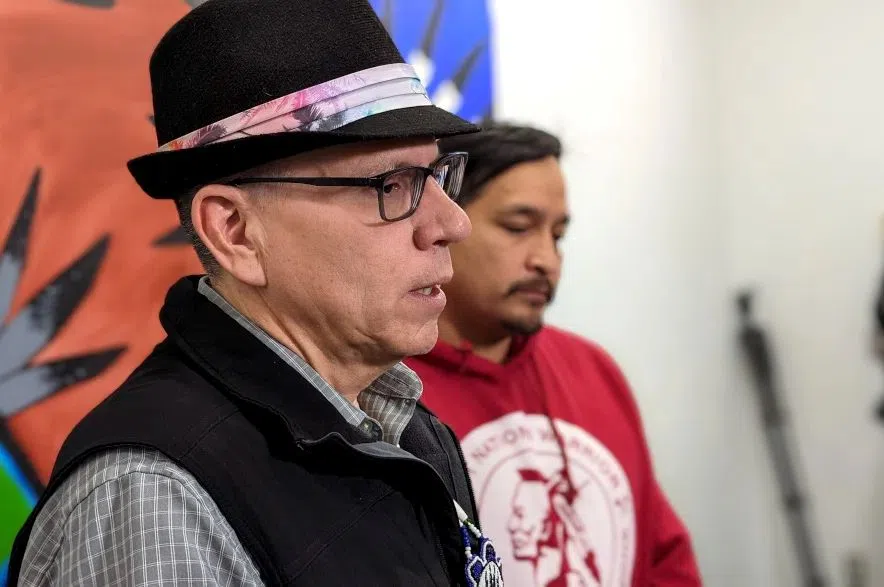One of the three chiefs from the James Smith Cree Nation was not impressed with a recent visit from members of the Correctional Service of Canada and the Parole Board of Canada.
Robert Head, chief of the Peter Chapman Band, made the comment during a video conference call on Wednesday.
“The conversations are nice, but really it’s lip service for the First Nation because we were after some concrete reform in areas of justice,” he said.
Some of those reforms included inclusion on the parole board operations when an offender is released back into a First Nations community.
“What they did is they had this big report that they did themselves without our input and we wanted to be at the table to provide our own side of the story so that they would have a more fulfilled report,” he said. “That didn’t happen, so we’re sort of disappointed in that respect.”
A report released Tuesday jointly by the Parole Board of Canada and the Correctional Service of Canada essentially indicated that all of the proper steps were taken when 32-year-old Myles Sanderson was given statutory release, and that staff could not have foreseen that Sanderson would go on to kill 11 people and injure another 17 others on Sept. 4, 2022.
Fourteen recommendations were made by a six-member board of investigators, three of whom were Indigenous, along with an Indigenous observer. Head said those people weren’t in any way connected to the James Smith Cree Nation, and leadership expected to be invited to the table to be part of the investigation.
“First Nations people are over-represented in all of the (corrections) institutions of Canada. We need to address that head on,” Head said. “If they’re not going to invite us to the table to provide our input, how are they going to come up with policies that reduce that high incarceration rate?”
Head said right now, there are no methods by which First Nations can be both part of the parole hearing and subsequently informed that an offender who’s a band member may be back in the community on statutory release.
“If we had something like that in place here in Saskatchewan, Myles could have actually been taken into custody long before these events occurred,” Head said.
Head added that Sanderson had a long record of criminal activity, including knife attacks on community members and other violent attacks on his former partner. Head said it was “mind-boggling” that the parole board would see Sanderson as a good candidate for statutory release.
“I think that would be one of the recommendations we would make is to have that ability to make presentations at the parole board to make a consensus on whether a person should be able to exercise that statutory release,” Head said.
The other important part, he said, would be to have local supports to help the offender reintegrate successfully into the community.
Chief Wally Burns also issued a statement indicating his disappointment in the report, saying neither he nor anyone else in his community wants a tragedy like that to ever happen again.











